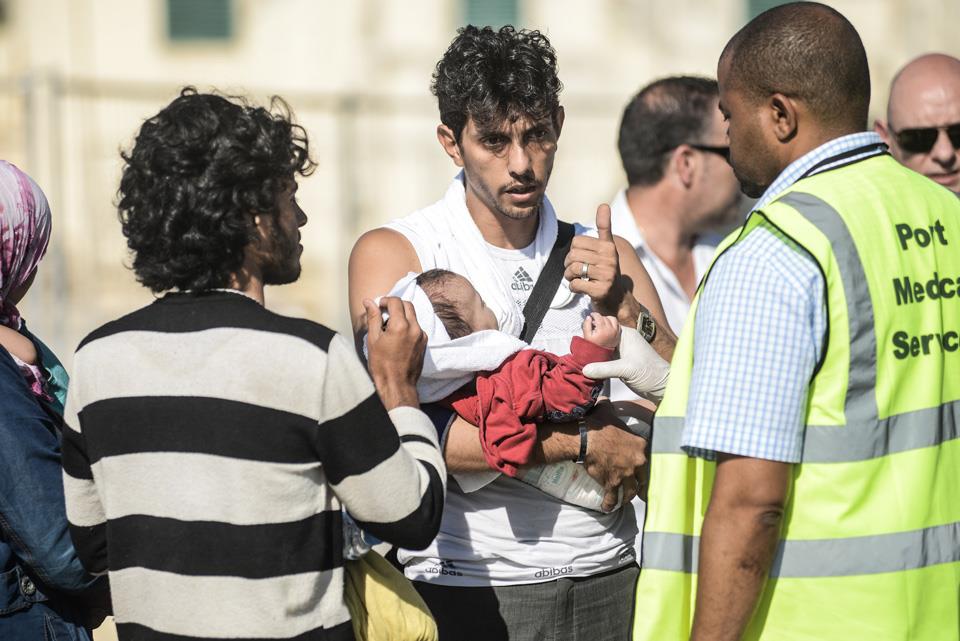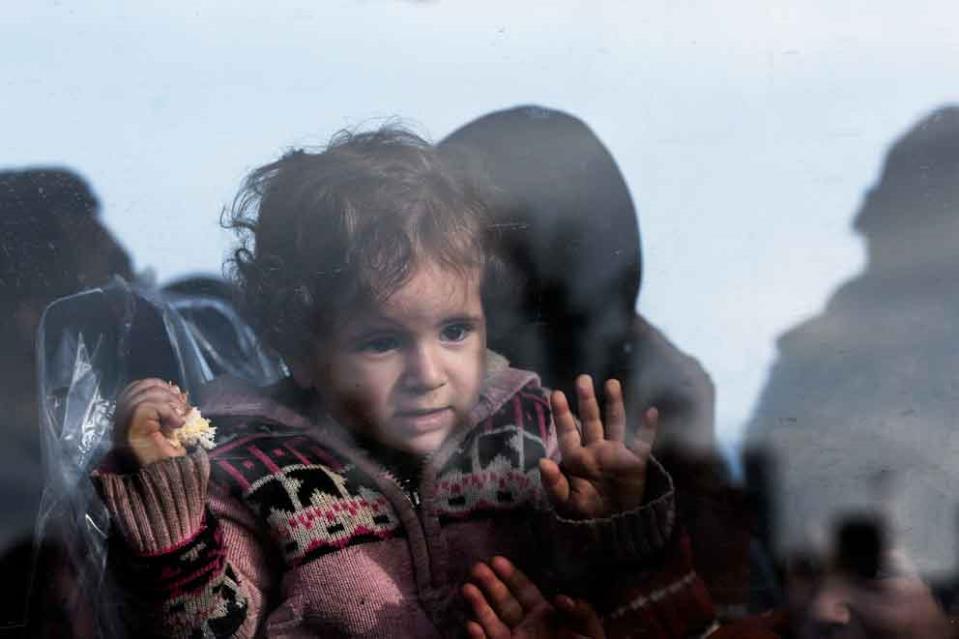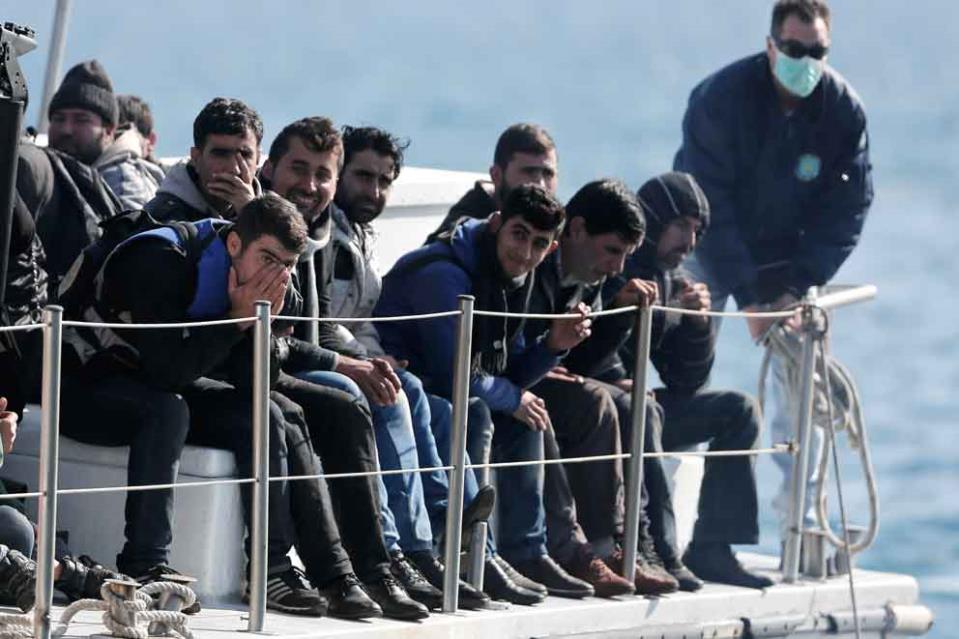There are no published records regarding how many detainees have been subjected to acts of violence, and complaints by the migrants are detailed in a report that is never published. However, the Board of Visitors for Detained Persons claims that allegations reported to it are dealt with appropriately and that, at times, officials at the detention centres are removed from their post.
On 13 January, records listing the number of incidents at detention centres in which AFM officials were the victims of violent acts were tabled in Parliament. These records were begun in 2003 and by 2013, 30 incidents had been recorded, most of which resulted in the official suffering minor injuries. However, the Home Affairs Minister revealed that no records exist in respect of how many migrants have been the victims of such acts.
As things stand, it is very difficult for migrants to file a report at a police station because they are confined to the detention centre, where there is no confidential way for them to file a report if they are being abused, bullied or threatened. "Even if there was a way in which complaints could be made - then who would be responsible for the migrant alleging such action, when he is confined in the same centre where the act allegedly happened? The person concerned would fear retribution," says Dr Neil Falzon, director of ADITUS, a foundation that advocates the protection of human rights.

Report of board remains unpublished
According to legislation, the Board of Visitors for Detained Persons has the power to hear complaints from detainees. The representatives of the board carry out visits each month after which they compile a report. That report, however, is not published and merely passed to the Home Affairs Ministry, as well as the head of the detention centre. Strictly speaking, the legislation rules that the report is confidential, unless the Ministry decides to publish it. However, ADITUS has called on the government several times to publish such a report. "No one knows whether or not complaints have been filed by the detainees, their content, or whether any action was taken. This system gives rise to abuse - the atmosphere in the detention centre is already off-putting in itself, and a lack of transparency only makes it unsafe", said Dr Falzon.
Back in 2009, The United Nations Working Group on Arbitrary Detention also recommended that the reports be made public, and the mandate and power of the board strengthened. So far, only trivial complaints have been published but it is unlikely that these are the only complaints that have been filed.
The board acts independently, but its members are appointed by the Home Affairs Ministry. The board is also obliged to investigate reports received by any third parties - including The United Nations High Commissioner for Refugees (UNHCR) and other NGOs. The use of excessive force and forms of punishment remain questionable, particularly in situations where officials control detainees who attempt to escape.

Board chairwoman assures action is being taken
In comments to The Malta Independent on Sunday, the board chairwoman Mary-Anne Agius stressed, that despite the report compiled remaining unpublished, the board does ensure that complaints are properly dealt with and, at times, this has meant officers being removed from their job at the detention centre. Mrs Agius admitted that at times migrants do come forward with shocking stories of physical abuse. Such reports reached a peak in 2008, when the number of detainees was much higher than today. The board is made up of a psychologist, a retired senior public official, a psychiatric nurse and a journalist. Members of the board carry out visits three times a month, during which they conduct administrative meetings, speak with detainees and check the records that are kept.

Cases of migrants beaten to death
In two separate cases in 2011 and in 2012, two detainees - Christian Ifeanyi Nwokaye and Mamdou Kamara - died following recapture by the detention services after escaping from custody. In both cases, allegations were made that they had been beaten during capture and media reports claimed that Kamara had died from intense pain resulting from the injuries he sustained.
A magisterial inquiry was ordered by former Prime Minister Lawrence Gonzi, but the report of its findings was not published until Prime Minister Joseph Muscat pressured the board to do so. The report, which was only published last month, confirmed that officers had resorted to excessive force and Kamara had died from a heart attack brought on by severe trauma after suffering a haemorrhage resulting from being kneed in the groin. In addition, the report states that detention centre officers had attempted to send Kamara to Mount Carmel because he often 'stirred up trouble'. The request had been denied and it was then that the officers put him in a steel cage where he was fatally beaten.
In the case of Christian Ifeanyi Nwokaye, magistrate Antonio Micallef Trigona ruled that there were no grounds to arraign soldiers or officials. A number of witnesses recounted in court having seen an official repeatedly hitting Nwokaye, but a post mortem ruled out any link between the bruising found on Mr Nwokoye's body and his death. However, the magistrate did note that the officers may have inflicted injuries, but proceedings could not be initiated because the period of prescription had lapsed.
This newspaper has also sent a list of questions to the government, asking whether it is intended to change the current procedure so that reports will be published in the future. In a very short reply, a spokesperson for the Home Affairs Ministry said: "The government is proactive on this issue. Since the appointment of a new Head of Detention Services in October 2013, all the information is being compiled."